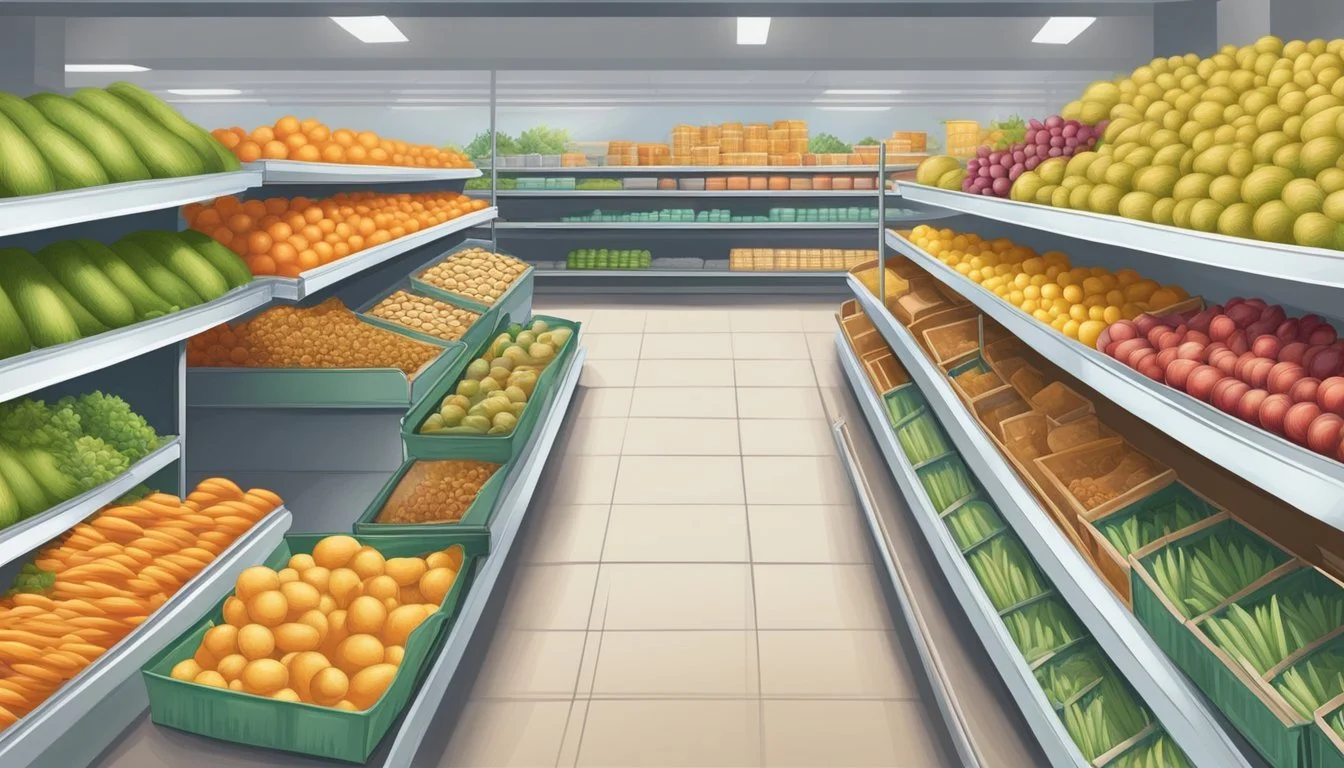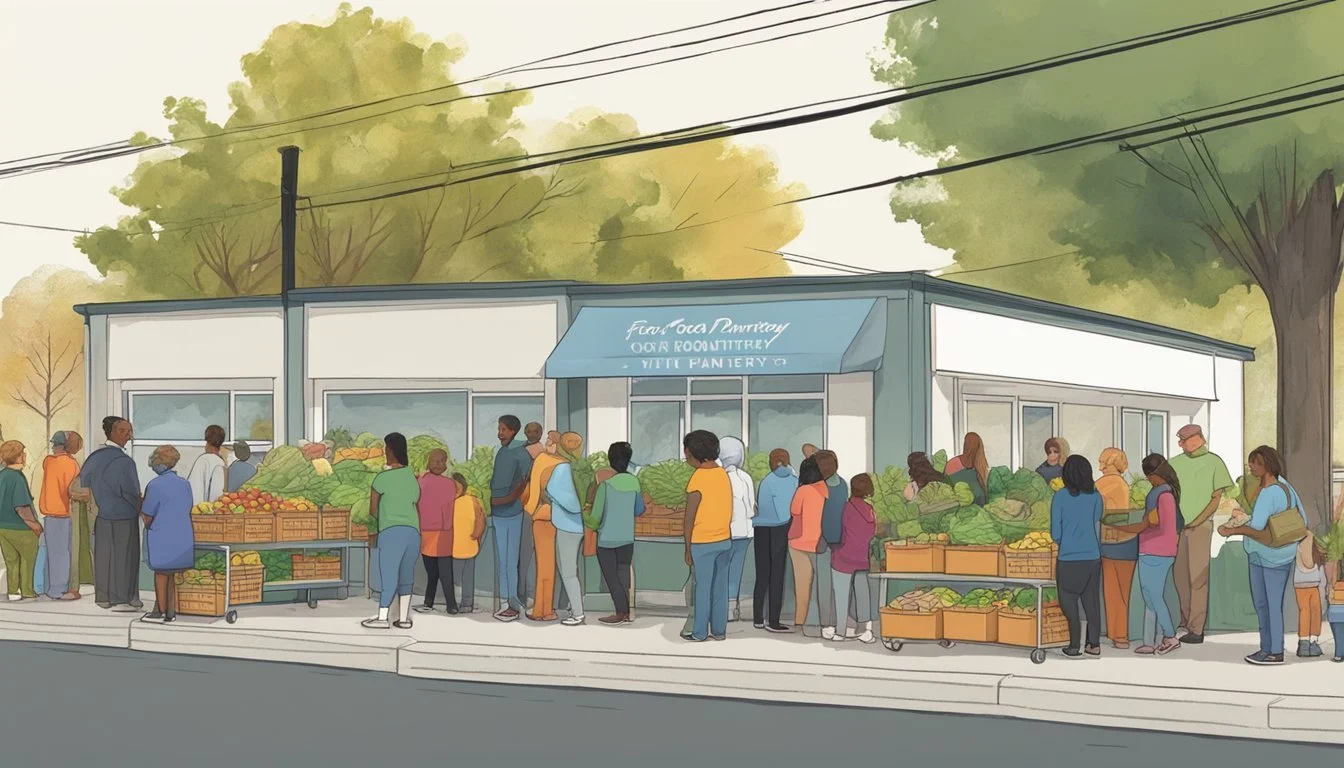Delaware Food Challenges
A Guide to the State's Toughest Culinary Contests
Delaware may be small in size, but it packs a big punch when it comes to food challenges and competitive eating. Across the state, from quiet rural towns to bustling urban centers, eateries are enticing food enthusiasts with daunting culinary feats. Whether it's a sky-high stack of patties or a mound of ice cream to conquer, these challenges are a testament to the adventurous spirit of local and visiting foodies alike.
Competitive eating takes on a local flavor in Delaware, where regional specialties and classic American fare become the focal points of gastronomic battles. Participants are often faced with finishing generous portions within a set time limit, stretching both their stomachs and their willpower. Establishments hosting these events gain notoriety and offer participants a chance at glory or, at the very least, a memorable story of culinary courage.
Casual observers and hardcore competitors alike find a variety of food challenges that satisfy cravings for both entertainment and indulgence. From the legendary burger challenges found in places like Born in a Barn to scooping through massive ice cream sundaes, these eating exploits are about more than just the food—they're about the community and camaraderie that come with sharing extraordinary dining experiences. Each challenge is a unique reflection of Delaware's culture and the enduring popularity of pushing the limits of one's appetite.
Delaware's Culinary Landscape
Delaware's culinary scene is a vibrant canvas that mirrors the state's diverse communities and their affinity for both innovation and tradition in cuisine. Local restaurants flourish throughout the state, with each offering a unique taste that appeals to the robust palate of Delawareans.
The Northern region, especially Wilmington, showcases an urban vibe with its eclectic eateries serving everything from gourmet burgers to international flavors. These restaurants are not just places to eat; they are neighborhood gatherings that reflect Wilmington's cultural diversity and culinary ambition.
Moving towards the center of the state, Bridgeville stands out during the apple harvest with the celebrated Apple Scrapple Festival. It is here where the local community takes pride in blending agricultural bounty with culinary festivities.
Southern Delaware tends to embrace the farm-to-table philosophy, strengthening the bond between local farmers and consumers. This is evident in efforts to increase the availability of locally grown products in community-centric retail spaces and events.
Farm to Store Pilot: Initiative to connect Delaware farmers with local retail stores.
The culinary challenges across Delaware encourage chefs and culinary students to innovate and push the boundaries of local cuisine. For example:
Delaware Grown Culinary Challenge: A competitive platform for showcasing local produce and culinary talent.
In essence, whether it be a casual meal at a local burger joint or a fine dining experience in Wilmington, Delaware’s gastronomic offerings are as diverse as its landscapes. Each bite tells a story of the state's rich agricultural heritage and its dynamic approach to food and beverage.
Food Challenges in Delaware
Delaware offers a variety of food challenges that cater to the bravado of competitive eaters and the curiosity of the public. These eating contests range from massive single-sitting servings to timed consumption races.
Famous Challenges
The Big Ass Burger Challenge at Jeff's Taproom in Bridgeville lures participants with a hefty four-pound burger accompanied by sides. Similarly, Wilmington's Charcoal Pit is known for "The Kitchen Sink," a towering 20-scoop ice cream challenge. These gastronomic feats draw competitive eaters and spectators alike.
Risks and Criticisms
Food challenges in Delaware are often criticized for being gluttonous, wasteful, and unhealthy. They pose significant health risks, such as choking hazards and the potential to promote obesity. Critics argue that these events propagate dangerous eating habits without proper awareness and understanding of the health implications.
Positive Aspects of Food Challenges
On the brighter side, food challenges promote a sense of community and have fostered a unique subculture where the people involved treat competitive eating as a sport. Local businesses hosting these challenges often witness a surge in patronage, which can bolster the local economy.
Regulations and Safety Measures
To ensure safety, organizers implement rules like mandatory sign-ups and waivers for participants. Health standards are emphasized, with safety measures such as on-site medical personnel during events. Regulations are in place to deter excessive food waste, and leftovers are often managed responsibly.
Participation Guidelines
Prospective competitors must meet eligibility criteria, including age restrictions and previous health conditions. Venues host participation guidelines detailing the event's specifics, ensuring contenders are fully informed about what the challenge entails and the physical demands required to compete.
Impact of the Pandemic on Food Supply and Challenges
During the COVID-19 pandemic, the food supply chain faced numerous obstacles due to increased consumer demand and labor shortages. Companies like Walmart and Instacart had to hire tens of thousands of additional workers to cope with the surge and implement new safety measures, reflecting the strain on supply chain operations.
The pandemic highlighted several vulnerabilities within the food system, impacting both food supply and demand. The disruption spanned across the agricultural sector, processing facilities, and distribution networks, leading to a call for urgent examination and restructuring to enhance system resilience. The effects on food supply chains varied by region and segment, however, the food security of nations was universally acknowledged to be at risk, necessitating strategic recovery approaches.
In Delaware, grocery stores experienced supply chain pressure but gradually saw improvement, as mentioned by shoppers who noticed a better stock of items later into the pandemic. This shows the adaptive response of retail distribution to an unprecedented situation.
Businesses across the U.S. agri-food supply chain had to tackle operational challenges in critical areas including food safety, logistics, and pricing. Numerous studies emphasized the need for cooperative efforts among food industry organizations to ensure the survivability of food systems during pandemics or other crises.
The pandemic's impact on food supply has reinforced the importance of flexible and robust supply chains to withstand future disruptions. The lessons learned are shaping recovery strategies that aim to bolster the entire food supply chain against potential vulnerabilities.
Addressing Food Insecurity in Delaware
Food insecurity remains a persistent challenge in Delaware, affecting a diverse group of individuals across the state. Strategies to combat this issue involve a multifaceted approach, focusing on the accessibility of nutritious food, the deployment of resources by food assistance organizations, and specific interventions aimed at vulnerable populations such as children.
The Food Bank of Delaware plays a pivotal role in addressing hunger. By leveraging a network of community partners, it orchestrates the distribution of millions of pounds of food annually to those in need. Their programs are designed not just to alleviate immediate hunger but also to foster long-term solutions through education and advocacy.
Nutritious food distribution is targeted to ensure that recipients have access not only to adequate calories but also to a diet that promotes good health. It’s vital to acknowledge that food insecurity correlates highly with diet-sensitive chronic diseases. Consequently, Delaware's approach includes the incorporation of fresh produce and healthy food options into assistance programs.
Efforts specifically tailored to help children are crucial, given that proper nutrition is essential for their growth and development. School meal programs, summer feeding sites, and backpack programs are some of the methods by which the state seeks to ensure children do not go hungry and have the energy needed to learn and thrive.
Entity
Food Bank of Delaware
Nutritious Food
Children
Role in Addressing Food Insecurity
Distributes food, educates, advocates for change
Ensures healthful options in aid programs
Receives targeted support through various programs
This strategic approach demonstrates Delaware's commitment to reducing hunger and improving the quality of life for all its residents through both immediate relief and long-term initiatives.
Community Response and Food Assistance
Delaware has witnessed a concerted community response to tackle food insecurity, with a spectrum of initiatives ranging from food distribution and agricultural support to policy formulation and funding. These efforts have been vital, especially in light of the challenges posed by the COVID-19 pandemic.
Food Bank and Distribution Efforts
The Food Bank of Delaware has played a pivotal role in combating food insecurity by significantly increasing the number of household visits for assistance. The pandemic led to a surge in demand, prompting the Food Bank to expand their operations, witnessing a 76% increase in visits from Fiscal Year 2022 to 2023. In conjunction with this, various food pantries, like the Food Rescue Pantry at Epworth United Methodist Church in Rehoboth Beach, have streamlined resources to assist communities in Delaware, ensuring emergency food resources are accessible.
Supporting Local Agriculture
Delaware's commitment to support small and mid-sized farmers bolsters the local food supply chain, ensuring a sustainable source of fresh produce. The First State Integrated Food System Program is one of the initiatives enhancing this support, aiming to improve food access and bolster the agricultural sector's resilience. Local farmers get the opportunity to connect directly with the community, providing fresh, locally sourced products.
Investments and Funding
Financial backing is imperative for consistent food assistance, and Delaware has leveraged the American Rescue Plan Act, allocating federal funds to address food insecurity. Grant opportunities and seed funding are provided to fortify the fight against hunger. The Delaware Department of Agriculture works in tandem with these efforts to secure the needed investments to strengthen Delaware's food system infrastructure.
Policy and Organizations
The Delaware Council on Farm and Food Policy offers expert advisement on food policy to ensure a cohesive approach to food insecurity. Organizations are working with policymakers to develop strategies that encompass emergency food distribution, long-term sustainability, and health and nutrition education, reflecting a comprehensive understanding of the challenges faced by communities.
Volunteering and Corporate Social Responsibility
A network of volunteers and business partners reflects the community's commitment to social responsibility. Corporate entities are realizing the importance of giving back, with volunteer programs and partnerships becoming more prevalent in addressing the needs of the struggling community members. These collaborations between businesses and food assistance organizations are key to sustained community support.
Educational Efforts and Awareness Campaigns
In Delaware, educational efforts are pivotal in addressing the food challenges facing the state. These initiatives aim to combat ignorance and foster greater awareness and understanding regarding food insecurity and waste.
Awareness campaigns play a significant role in teaching Delaware's communities about the importance of food sustainability. For instance, programs are in place to highlight the benefits of composting and the diversion of organic waste. These initiatives, such as the ones found on Food Handlers Guide, provide valuable resources and tools to encourage individuals and organizations to start their composting projects.
Education is not confined to composting, as awareness campaigns also address food waste at the consumer level. Informational initiatives, evident in the strategies documented by MDPI, have been rolled out via media, shops, and online platforms to reflect on the scope of food waste.
These educational campaigns are shifting the mindset of Delawareans by injecting knowledge into everyday practices. They empower consumers to make informed decisions that can play a role in mitigating food waste, thus contributing to a more sustainable food system within the state.
Further reinforcing these efforts, Delaware Public Media reports on studies and data that project the implications of current challenges, such as the spike in food insecurity due to the pandemic, adding another layer to the understanding of the issue.
In conclusion, the combination of awareness, education, and understanding forms the backbone of these campaigns, enabling Delaware to advance towards a more sustainable and food-secure future.
Future Outlook
Delaware's food challenges are evolving, with the state making concerted efforts to strengthen its food systems through sustainable practices, adaptation to new normals, collaborative engagements, and enhanced distribution networks.
Sustainable Practices and Food Systems
Delaware's initiative to stabilize and fortify its food systems is evident through its investment in sustainable practices. The state's commitment to improves access to Delaware-grown food includes creating viable markets that not only satisfy consumer outlets but also ensure the longevity of food production and processing within the community.
Adapting Food Challenges to New Normals
The COVID-19 pandemic has altered the way Delaware addresses food insecurity, pushing the state to redesign its strategies around food systems. Emphasis is placed on developing flexible food supply chains that can withstand disruptions, from production to retail, ensuring that groceries and other necessary items remain accessible even during emergencies.
Industry and Government Collaboration
Collaboration is key to Delaware's approach. The state, led by figures like Nikko Brady, works closely with industry stakeholders to create a cohesive environment that promotes efficient food supply chain operations. This includes enhancing connections between production, processing, and distribution sectors to ensure a reliable flow of goods to the community.
Enhanced Food Distribution and Support
Investments in food system programs look to optimize distribution networks and improve storage capabilities to meet community needs. As part of these efforts, Delaware supports initiatives that enhance food distribution and support systems, addressing not only present challenges but also preparing for future demands.








